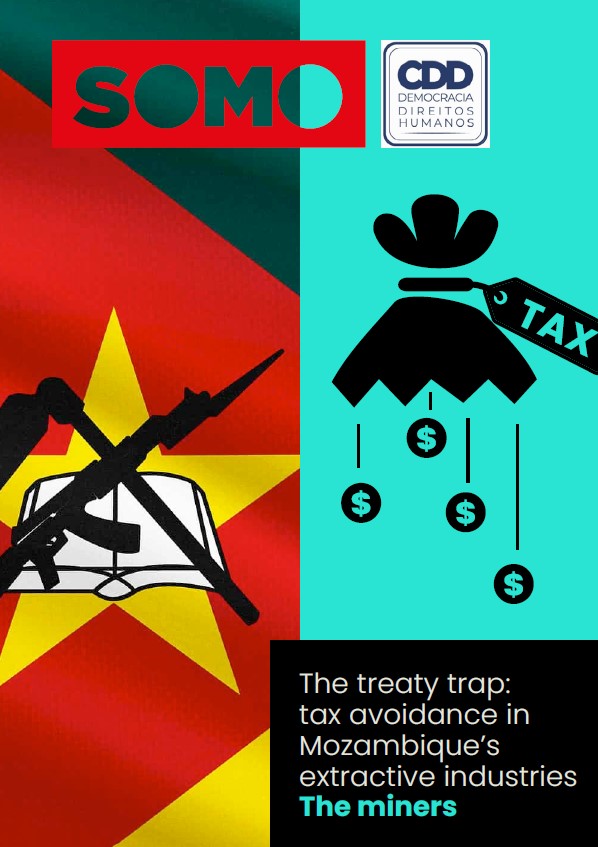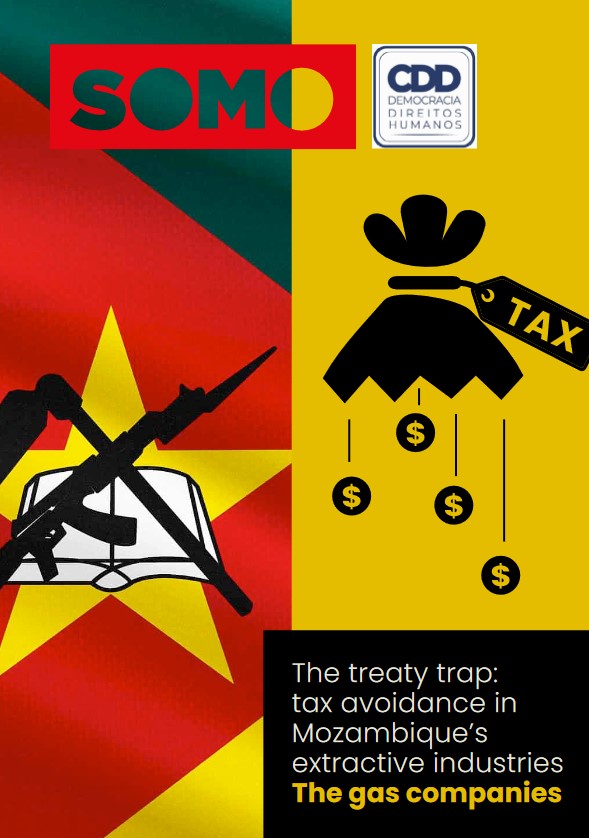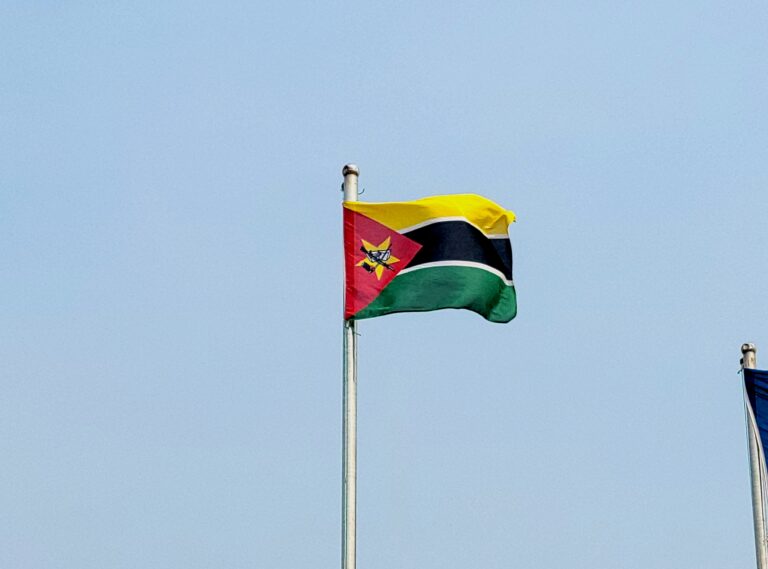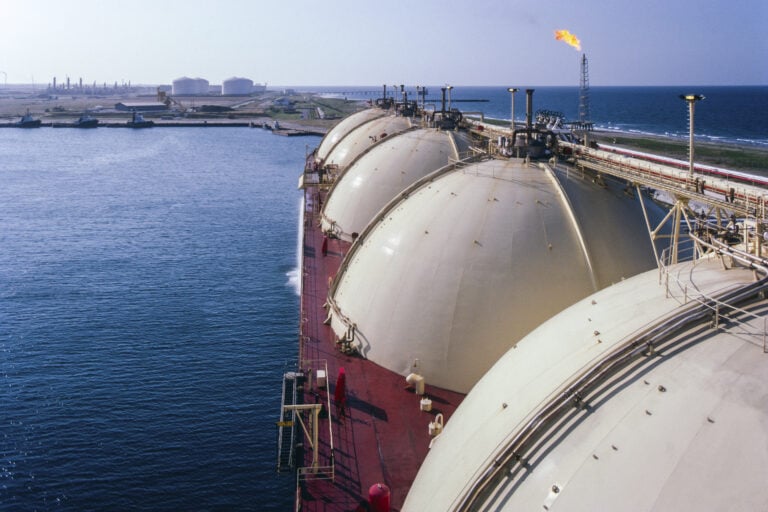
Tax avoidance in Mozambique’s extractive industries
Mozambique’s extractive industries are fraught with tax avoidance. Through abusing tax treaties Mozambique has with tax havens Mauritius and the United Arab Emirates (UAE), SOMO estimates that five gas and mining companies – including TotalEnergies, Eni, and Vale – will involve the avoidance of between US$ 1.4 and US$ 2.1 billion in Mozambican taxes.

These lost tax revenues should provide essential health care and education for Mozambicans. To tackle tax avoidance, Mozambique should review its tax treaties and renegotiate or terminate its treaties with Mauritius and the UAE, which facilitate tax avoidance practices.
Mozambique is in the middle of a rapid expansion of its extractive industries. In the past decade, the discovery of gas reserves has brought about unprecedented levels of investment, and the mining industry has also expanded significantly(opens in new window) . Gas exports from Mozambique commenced in 2022, while mining accounted for nearly 80 per cent(opens in new window) of the country’s total exports in 2021. This growth in extractive industries is often framed as a driving force for Mozambique’s development.

Violent conflict
Amid hopes that it will drive economic development, the growth of Mozambique’s extractive industries has also been identified as a driver of violent conflict – specifically in the country’s northernmost province of Cabo Delgado. The province has been at the centre stage of a violent insurgency since 2017, and research suggests that increasing inequality arising from gas extraction and ruby mining projects significantly contributed to the conflict’s eruption.
Another caveat regarding the “extractives for economic development” narrative is the widespread tax avoidance associated with Mozambique’s extractive industries. Previous SOMO research exposed how Mozambique loses hundreds of millions of US dollars in tax revenue annually ($315 million in 2021) through the abuse of its tax treaties with Mauritius and the UAE. By setting up a mailbox company in one of these two jurisdictions, companies can gain access to those treaties’ benefits, lowering the tax rates they are subject to in Mozambique. The treaties with Mauritius and the UAE provide an opportunity for multinational corporations to avoid Mozambican taxes.
The research presented here illustrates how this tax avoidance works in practice, separated into two reports: The gas companies and The miners.
The gas companies
The gas companies explains how the investors behind the Area 1 gas project, operated by TotalEnergies, and the Coral South FLNG (floating liquefied natural gas) project, operated by Eni, use subsidiaries in the UAE as conduits to provide loans to their respective projects in Mozambique. By doing so, these corporations illegitimately gain access to the tax benefits enshrined in the Mozambique–UAE tax treaty, allowing them to avoid tax on the interest associated with these loans. Besides any legal and tax benefits this structure provides, the UAE is not a jurisdiction of importance for these gas projects. As such, these multinational corporations appear to have created a paper reality – although one with real-world consequences – that will cause Mozambique to lose out on an estimated $ 1.3 to $ 2 billion in much-needed tax income during the lifetime of both projects.
These tax losses amount to between 43 per cent and 67 per cent(opens in new window) of Mozambique’s entire 2021 government spending. Were Mozambique to collect these taxes, it could spend its annual education budget an additional 3.5 times or nearly double its 2021 spending on public healthcare. An increase in public income and expenditure of this magnitude could greatly improve the lives of Mozambicans. It could, for example, be used to improve the desperate living conditions of those affected by the violent conflict in Cabo Delgado.
The miners
The miners shows how three mining operations in Mozambique have avoided an estimated $117 million in Mozambican taxes since 2016. All three have employed different tax avoidance schemes to achieve this. The investors behind the Nacala Logistics Corridor (NLC) for coal mining – Vale (until 2022) and Mitsui & Co. (until 2021) – used a UAE-based subsidiary to finance its Mozambican operations, an avoidance structure similar to that employed by the gas producers discussed above. By routing their finance through the UAE instead of providing it to the NLC directly, these companies managed to avoid approximately $ 97 million in withholding taxes on interest payments, to the detriment of Mozambique.
The other two mining cases, regarding Gemfields’ Montepuez ruby mine and Kenmare’s Moma titanium mine, both involve avoiding Mozambican withholding taxes on dividends. Gemfields owns its Mozambican mine through what appears to be a mailbox company in Mauritius. This gives the company access to a lowered dividend tax rate enshrined in the double taxation agreement (DTA) between Mauritius and Mozambique.
Whereas Gemfields has structured ownership of its Mozambican subsidiary through a Mauritian mailbox company, Kenmare has avoided incorporating a Mozambican subsidiary at all. Instead, Kenmare controls its singular operational mining asset in Mozambique, the Moma mine, through a branch of its Mauritian subsidiary. Because of the fiscal treatment of branches in Mozambique allows Kenmare to avoid Mozambique’s tax on dividend payments altogether.
Although different in execution, Gemfields’ and Kenmare’s tax avoidance structures have a similar outcome: each has caused Mozambique to lose approximately $10 million in tax revenue.
The estimated $117 million in lost Mozambican tax revenue due to these tax avoidance structures could instead have been used to improve the lives of Mozambicans. Had these companies instead paid their fair share in taxes, the Mozambican government could, for example, have used this sum to construct eight general hospitals or 3,000 classrooms. These are significant investments considering that many Mozambicans do not have access to adequate healthcare services, while some 650,000 children reportedly do not attend school(opens in new window) .
Data availability regarding these extractive industry investments in Mozambique is minimal. Mozambican companies are not required to publish annual accounts, and an outsized part of the investments is routed through the secrecy jurisdictions of Mauritius and the UAE, making detailed financial information hard to find. During this research, SOMO encountered many more indications of tax avoidance by extractive industry companies in Mozambique, but we were unable to substantiate most of these due to data constraints. Therefore, it appears likely that the five cases of tax avoidance presented here are only the tip of the iceberg when it comes to extractive industries abusing Mozambique’s tax treaties to avoid paying their fair share of taxes.
Renegotiation or termination of tax treaties
The Mozambican government has the tools to stop this widespread tax avoidance, however. By renegotiating or terminating its tax treaties with Mauritius and the UAE, it could limit companies’ opportunities for tax avoidance. Setting up a transparent tax treaty policy that protects Mozambique’s taxing rights in treaty negotiations would ensure that Mozambique never again agrees on similar treaties with known tax havens. Additional measures Mozambique should take to stop the abuse of its tax treaties and to limit corporate tax avoidance are outlined in The gas companies and The miners reports.
Related news
-
The treaty trap: The miners Published on:
 Vincent KiezebrinkPosted in category:Publication
Vincent KiezebrinkPosted in category:Publication Vincent Kiezebrink
Vincent Kiezebrink
-
The treaty trap: The gas companies Published on:
 Vincent KiezebrinkPosted in category:Publication
Vincent KiezebrinkPosted in category:Publication Vincent Kiezebrink
Vincent Kiezebrink
-
 Oil and gas multinationals avoid up to $2 billion in taxes in MozambiquePosted in category:News
Oil and gas multinationals avoid up to $2 billion in taxes in MozambiquePosted in category:News Vincent KiezebrinkPublished on:
Vincent KiezebrinkPublished on:

